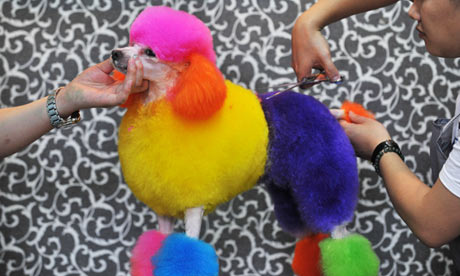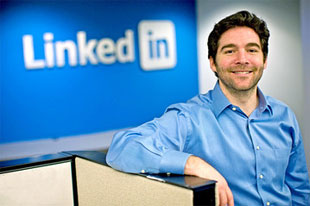 By Leon Kaye
By Leon Kaye
Happy employees and a culture of ‘weirdness’ has led to success for green cleaning products company Method.
Keeping it “weird” makes Method’s employees happy, and contributes to the $100m company’s success.
When Adam Lowry and Eric Ryan launched Method in 2000, cleaning products were mostly chemical potions tucked into drab bottles.
A decade later, their company has refreshed a stuffy industry with sparkling bottles full of eco-friendly soaps and surface cleaners in glowing pastel colours.
With Lowry and Ryan at the helm of the People Against Dirty movement, Method grew into a $100m (£62.3m) company through an unconventional and self-confessed “weird” business approach. The company views its business model as a social mission; above all the company’s culture is one focused on employee happiness and high-end design is core to its unrelenting quest for innovation.
Keep it weird
The drive to keep Method’s employees happy starts during a three-step hiring stage. First, a series of several cross-functional interviews are held during which a candidate will talk with several of the company’s professionals across various functions – perhaps even one of the company’s scientists, who at Method wear the job title “green chefs”. The interview’s objective is to convince applicants they are not just contending for a position, but to be a holistic part of the company.
Candidates who make the next round receive a rigorous “homework” assignment. Those who balk at the homework – including a past finalist for the company’s chief executive position – knock themselves out of contention. Included in that assignment are strategic and tactical questions, and finally the clincher: “How would you keep Method weird?”
As co-founder Ryan explained it: “Will I want to sit next to this person for five hours on a flight?” Experience and job knowledge are important at Method, but above all that new hire must not upset the company’s chemistry. Fewer hiring mistakes also lead to less frequent unhappy firings.
As the company grew, the camaraderie and teamwork at Method succeeded for so long that the company did not hire a full-time human resources director (perhaps that should read ‘happiness resources’), or head of Method’s people and the environment department until 2008.
Method reveals new employees during an “onboarding process” that begins at the weekly Monday morning “huddles” in its San Francisco headquarters. This is not just an event to brag about new contracts or sales figures: employees can share successes, challenges and nominate each other for a “value award.” The huddle is so important to Method’s culture that it designed its lobby – a convivial space full of futuristic furniture and a cutting edge sound system – for these weekly events. Each Monday, a different employee leads the huddle.
The sharing of roles goes beyond the Monday morning huddles. In January, Method started a policy of rotating the receptionist position between each employee. No one is immune from duty; everyone must perform that function with another colleague at least once a month. According to Ryan, the task of answering the phones and greeting visitors keeps ego out of the company, cements relationships between employees and reinforces community.
Other policies Method started to maintain harmony between employees include a “come clean survey,” in which employees offer frank answers to a variety of survey questions the company publishes anonymously and distributes company-wide.
And employees also have fun outside the company’s downtown San Francisco office. Every summer Method hosts a summer prom for which remote employees in Chicago, Hong Kong and London are flown in for a night of revelry based on an offbeat theme.
Work-Life Balance
Ryan insists that the constant focus on happiness – and weirdness – keeps the company competitive and innovative and is a nod to the blurring of the lines between personal and professional lives; the ability to check email and call mobile phones after work hours has crumbled the walls between work and home. So Method’s answer to the question about life-work balance is to have its employees not just be colleagues, but friends who are willing to push themselves and each other.
And while employees may grumble that it takes too long for new positions to be filled, Method’s culture of happiness lends itself to employees. Ryan estimates that they can get about 10% more productivity out of employees because while jobs require confronting new challenges, they are happy. In sum, an employee is fulfilled if he or she has a little too much work rather than sitting at a desk and not feeling challenged.
At a higher level, the happiness exuded in Method’s offices are reflected in the company’s products and brand. By creating products that are environmentally-sustainable, well-designed, competitively-priced and fun to use, Method pushed the leading consumer goods companies to roll out their own green cleaning products.
The fierce competition within the cleaning products space hardly affected Method’s attitude towards its rivals. When one competitor claimed that the company’s use of a daisy was a trademark infringement, Lowry and Ryan responded not with a barrage of lawyers, but with a witty and spry video that reflected the uplifting approach Method has on its people, products and the planet.
Now Method is in the midst of a new chapter. In late August, the company merged with the Belgian green cleaning products company Ecover. Clearly, maintaining this spirit of fun and happiness will be a challenge for Method as it integrates with a very different company and culture.
But as Lowry said as we wrapped up our talk: “We cannot just preserve our company’s culture – we have to make it better.” So far Method’s employees, despite obvious concerns, are still happy: Method has yet to lay off an employee due to the merger.
 Turkish Labor Law
Turkish Labor Law


